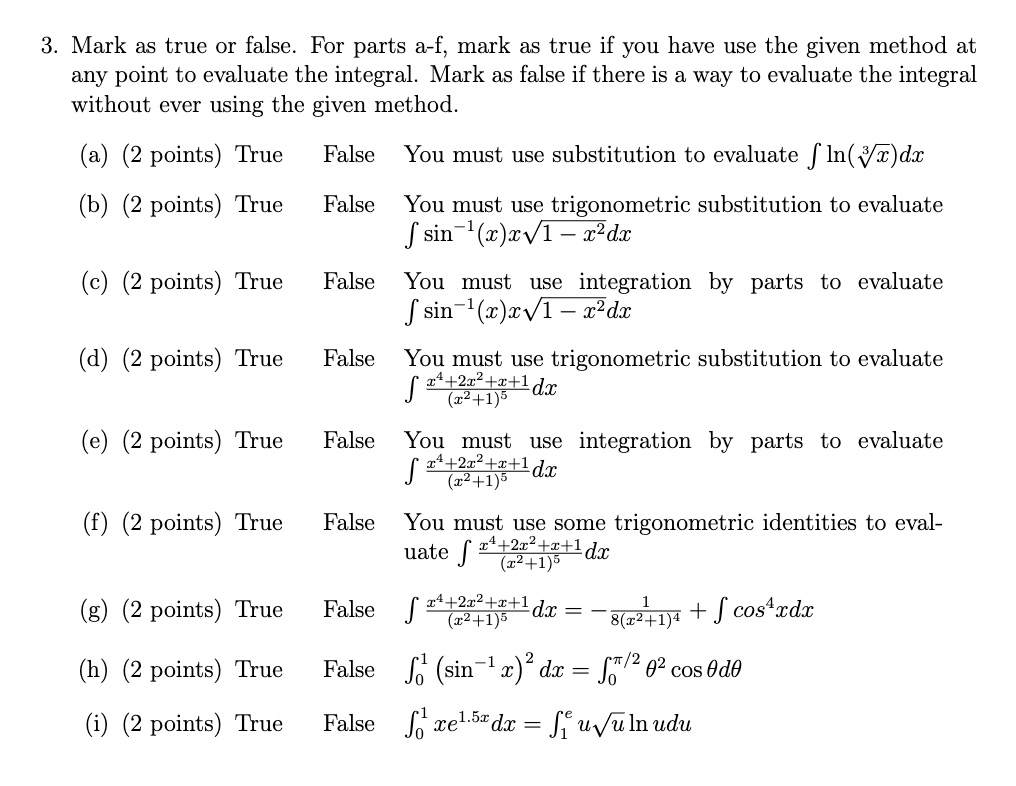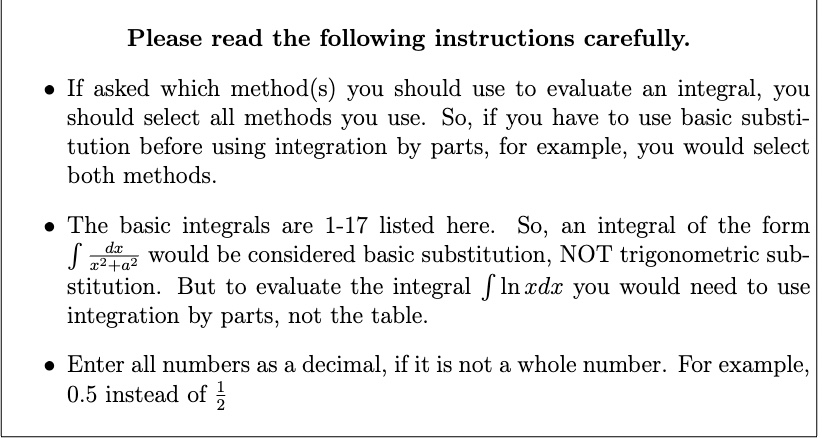Home /
Expert Answers /
Calculus /
mark-as-true-or-false-for-parts-a-f-mark-as-true-if-you-have-use-the-given-method-at-any-point-to-pa719
(Solved): Mark as true or false. For parts a-f, mark as true if you have use the given method at any point to ...
Mark as true or false. For parts a-f, mark as true if you have use the given method at
any point to evaluate the integral. Mark as false if there is a way to evaluate the integral
without ever using the given method.
(a) (2 points) True False You must use substitution to evaluate \int ln(\root(3)(x))dx
(b) (2 points) True False You must use trigonometric substitution to evaluate
\int sin^(-1)(x)x\sqrt(1-x^(2))dx
(c) (2 points) True False You must use integration by parts to evaluate
\int sin^(-1)(x)x\sqrt(1-x^(2))dx
(d) (2 points) True False You must use trigonometric substitution to evaluate
\int (x^(4)+2x^(2)+x+1)/((x^(2)+1)^(5))dx
(e) (2 points) True False You must use integration by parts to evaluate
\int (x^(4)+2x^(2)+x+1)/((x^(2)+1)^(5))dx
(f) (2 points) True False You must use some trigonometric identities to eval-
uate \int (x^(4)+2x^(2)+x+1)/((x^(2)+1)^(5))dx
(g) (2 points) True False \int (x^(4)+2x^(2)+x+1)/((x^(2)+1)^(5))dx=-(1)/(8(x^(2)+1)^(4))+\int cos^(4)xdx
(h) (2 points) True False \int_0^1 (sin^(-1)x)^(2)dx=\int_0^((\pi )/(2)) \theta ^(2)cos\theta d\theta
(i) (2 points) True False \int_0^1 xe^(1.5x)dx=\int_1^e u\sqrt(u)lnudu Please read the following instructions carefully.
If asked which method(s) you should use to evaluate an integral, you
should select all methods you use. So, if you have to use basic substi-
tution before using integration by parts, for example, you would select
both methods.
The basic integrals are 1-17 listed here. So, an integral of the form
\int (dx)/(x^(2)+a^(2)) would be considered basic substitution, NOT trigonometric sub-
stitution. But to evaluate the integral \int lnxdx you would need to use
integration by parts, not the table.
Enter all numbers as a decimal, if it is not a whole number. For example,
0.5 instead of (1)/(2)
